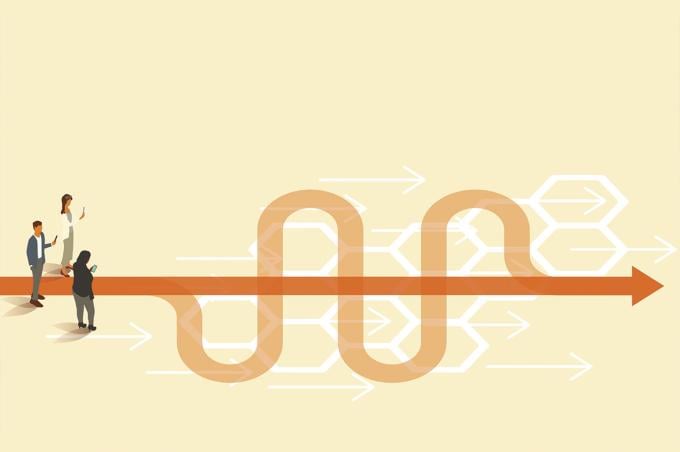There’s a growing recognition that system structures in medicine are fueling the all-time high burnout physicians are experiencing and there’s a movement afoot to make changes. But physicians’ well-being—including mental health—continues to take a toll.
While practices, health systems, insurers, licensing boards and others strive to make changes to ease burdens, the long-standing culture in medicine that makes physicians feel as if they are failing if they seek mental health care—and a fear that they could lose their license or privileges—prevents doctors from seeking the care they may desperately need.
Experts say that needs to change too.
During the “Addressing Physician Burnout” webinar led by AMA President Jack Resneck Jr., MD,
U.S. Surgeon General Vivek H. Murthy, MD, and a panel of experts on physician well-being discussed how everyone plays a role in reducing the stigma surrounding mental health in medicine and ensuring colleagues know help is available when needed. The surgeon general’s office last year issued an advisory saying that it is a “moral obligation” to fight burnout among physicians and other health professionals.
Drs. Resneck and Murthy pointed to the tragedy of New York emergency medicine physician Lorna Breen, MD, who died by suicide during the early days of the COVID-19 pandemic as a sad example of why changes need to be made.
“The crisis of burnout in our profession has been brewing for a long time. It was worsened by the pandemic, but preceded the pandemic,” Dr. Murthy said. “Stories like Dr. Breen’s are just absolutely tragic reminders that we have much more work to do right by people who are stepping up and entering this profession because they want to help and are finding often that it’s too hard to do so. And it shouldn’t be that way.”
Reducing physician burnout is a critical component of the AMA Recovery Plan for America’s Physicians.
Far too many American physicians experience burnout. That's why the AMA develops resources that prioritize well-being and highlight workflow changes so physicians can focus on what matters—patient care.
As discussed in the webinar, here is how to reduce stigma and encourage physicians to seek help.
Lead by example
Physicians and other health care leaders need to recognize that when they step up and use care—and do that publicly by talking about their stories and struggles—it helps show that it’s OK for others to do the same.
And Nigel Girgrah, MD, PhD, chief wellness officer at Ochsner Health in New Orleans, did just that. Ochsner Health is a recognized organization of the AMA Joy in Medicine™ Health System Recognition Program and a member of the AMA Health System Program, which provides enterprise solutions to equip leadership, physicians and care teams with resources to help drive the future of medicine.
Dr. Girgrah shared an open letter with 34,000 coworkers about his own mental health struggles and subsequent help in the summer of 2020. It changed how mental health is discussed at his organization.
“I had hundreds of people reach out sharing their stories,” Dr. Girgrah said during the webinar. Some of those who contacted him said it was “ a call for action to seek help,”.
Share more data
Data will help people understand how widespread mental health concerns are among physicians and other health professionals.
“This is not the concern of 1% or 2%,” said Dr. Murthy. “The vast majority of clinicians at some point experience mental health struggles, whether it is depression or anxiety or challenges with managing stress or handling the loneliness and isolation that can come with our work.”
Make policy changes
Changing questions on licensing and other applications that discourage physicians from being honest about seeking help is important. AMA policy encourages state licensing boards to require that physicians only disclose current physical or mental health conditions that impact their ability to practice medicine.
“We should not be punishing people for seeking care when they need it,” said Dr. Murthy.
Talk to colleagues
Those with executive titles or leadership roles should not be the only ones talking about mental health. Individual physicians should reach out for help when they need it. They should also check in with colleagues about how they are doing.
By doing so, physicians and health professionals can come to realize, that “this is something we can talk about,” Dr. Murthy said. “It’s OK to ask for help. And it often feels good to give help too, when asked.”




